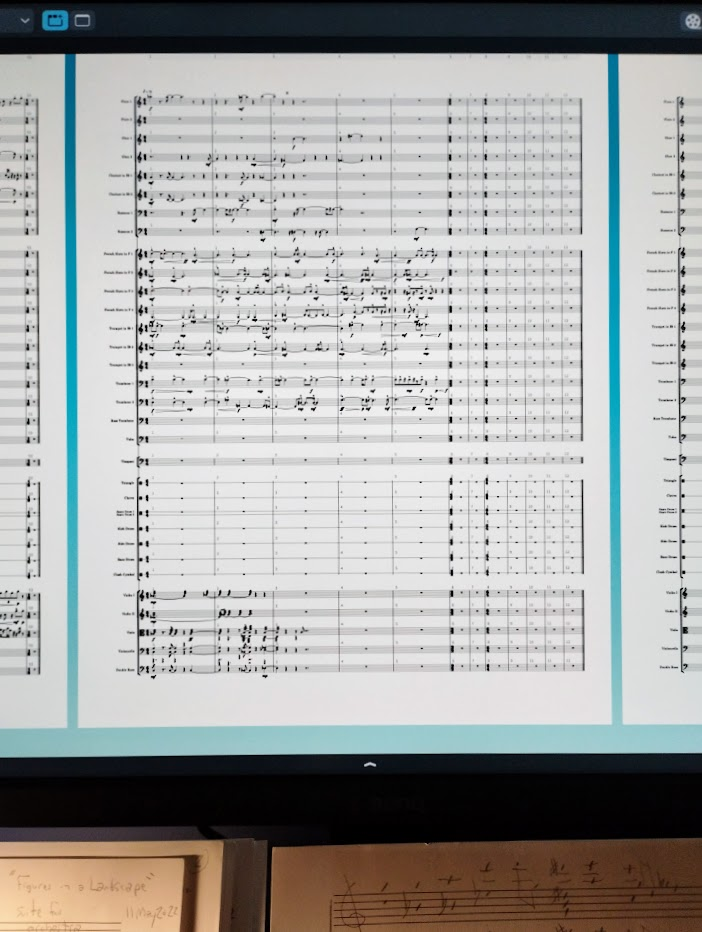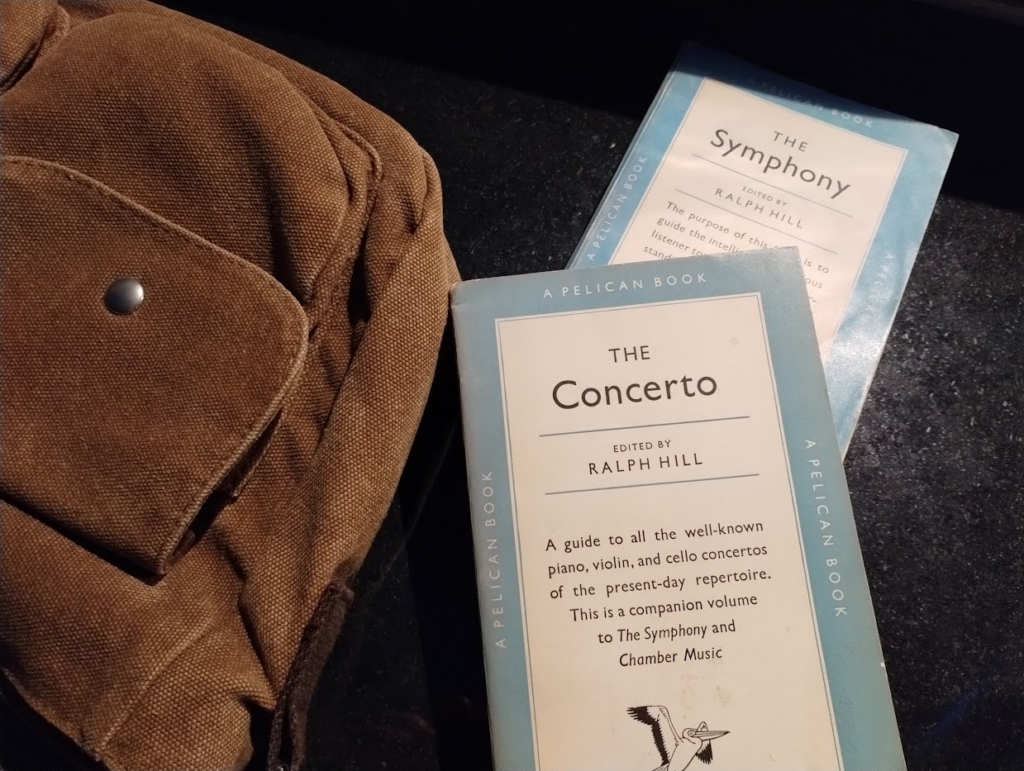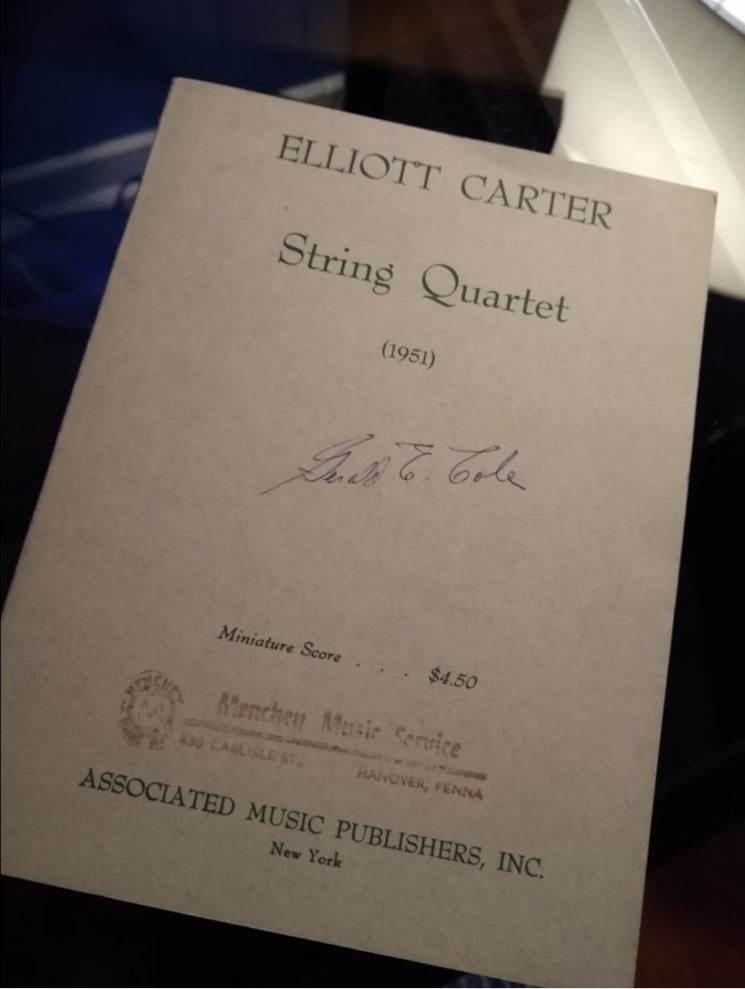I’ve just started the 5th movement, Fire, in which our heroes are trapped in a conflagration in the field of local villagers. (In my research notes, I have it covering pages 94-115 of the 2020 Penguin/Vintage edition I use as reference.) At this point I am struggling with the idea of program music in contrast with soundtracks. A few months back I had an abbreviated, stumbling Twitter conversation with an individual Much Better Informed but we ended up having the same opinions of soundtracks-as-pure-music. That is: a low one. In these days of a renaissance of quality composers, it’s admittedly a bit unpopular to get all academically scoffy about music written for movies.

First of all, I’m in admiration of many film composers. Erich Korngold, who I know primarily from the wonderful The Adventures of Robin Hood (1938), would compose themes and semi-improvise with the orchestra. Hans Zimmer, for Dune (2021), did extensive research and had instruments created (iirc) in an attempt to create music detached from our present age by millennia. I’d watched interviews with Peter Jackson showing the detailed interplay he and Howard Shore had weaving together the motifs, with nuanced alterations, for Lord of the Rings (2001-2003).
And there are composers, spoken of with equal reverence, whose music I actively dislike. Ennio Morricone I could just never see any value in (despite the iconic Man With No Name theme). John Williams’s music is such a late-Romantic/Wagner pastiche it irritates me. Bernard Hermann is icky but I just can’t put my finger on why; maybe it just feels too put-on dissonant at times? Nino Rota I put in a category of irritating faux-authenticity. Jerry Goldsmith is shallow.
But none of these criticisms dull my appreciation of their use in cinema. I admittedly have not gone on deep dives of these composers so take my criticisms with the subjectivity they deserve, and likely a subjectivity with deficit.
And this gets to the new creative doubt: am I creating film music (music as background) or program music (narrative as background)?

I just purchased two new books, The Symphony and The Concerto (both 1956 reprints), on impulse from a pic that one of my new internet-friends posted on Mastodon (my new home after Twitter became patient zero for Nazis). They contain a collection of essays written by different authors covering specific composers and their works, either symphonies or concertos respectively, from mid-1700s to early-1900s, and should be a relaxing balm in between studying Paul Griffiths’ Modern Music and After and Felix Saltzer’s Structural Hearing. The tone of the introduction to The Symphony feels either very British or just very dated:
It is to such people who think about music and want to study the composers’ thoughts and processes that this book is addressed. In other words, to intelligent listeners. A knowledge of the elementary principles upon which the art of music is based is of course necessary. Most intelligent listeners have already acquired such knowledge. Those who have not can easily do so.
Ralph Hill, The Symphony, Introduction
Do tell.
One of my favorite YouTube channels is Classical Nerd’s (aka Thomas Little). He has produced videos that are a deep-ish dives–around an hour–into New Complexity, Spectralism, Irrational Time Signatures, Ligeti, along with many other composers and compositional techniques. Carter has always been a favorite of mine ever since I heard his first String Quartet in high school (?). (A while back I found a study score of it and I must have been extremely lucky because I can’t find another copy like it.)
So it’s odd that I’d not watched Classical Nerd’s video on Carter until now. There are many fascinating points that he makes, but one quote was particularly relevant:
Ursula Oppens asked Carter about a seeming lack of rhythmic regularity in a certain section [of Night Fantasies], Carter replying that he intentionally covered up the system, the polyrhythm [of 218:175], at that point because it struck him as being too mechanical.
Classical Nerd, 40:09 in the video
(I mean, 218-against-175 is both offensively complex and par for the course. I love it.) This is a key point that I focus on in my own work when there’s an underlying harmonic or rhythmic frame, but also what I’ve read in analysis of Ferneyhough’s music. That is: the willingness to break structure when appropriate.
Also of note, there are more than 1,000 pages of sketches for Night Fantasies, which is just both bonkers and humbling. The piece is not only praised as a monument of Carter’s output, but also as a landmark in the history of solo piano composition. Ashamedly, I have not yet listened to it (so my statement of devotion to Carter, I guess, holds little weight).

Uncharacteristically to the above, I have chosen to focus and actively listen to Carter’s early, formative works, his Piano Sonata (1945-1946) and Cello Sonata (1948). They’re both interesting as modern music and as Carter’s formative compositions (just before the String Quartet (1951)).